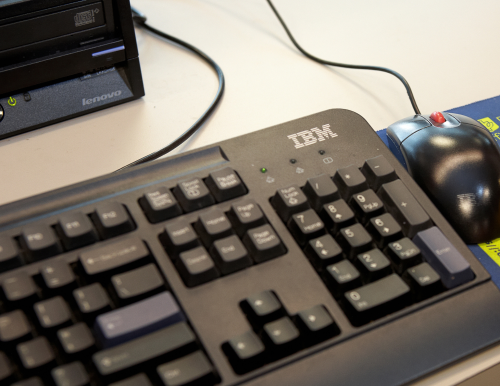Oct 01, 2008
People More Willing to Fib In E-mails, Study Co-Authored By DePaul Professor Finds
People More Willing to Fib In E-mails, Study Co-Authored By DePaul Professor Finds
(Source:
"The results of our study illustrate that traditional pen-and-paper communication is indeed different from e-mail in the way it influences people's behaviors, even though both [are] text only," concluded the study by Charles Naquin, assistant professor of management at DePaul; Terri Kurtzberg, associate professor of management and global business, Rutgers University, and Liuba Belkin, assistant professor of marketing and management, of Lehigh University.
In trying to account for the difference between two communication modes that appear similar, the researchers surmised that people may "feel written documents carry stronger legal consequences than do e-mails, which feel fleeting in nature, despite the fact that they are actually harder to erase or contain. Thus, deception may be viewed differently in these two environments."
And they add: "Overall, the lower degree of social obligation found in the use of e-mail versus paper, coupled with ambiguity for communication norms and lack of formal rules, procedures, and expectations regarding e-mail, may allow individuals to tap into a sense of psychological justification for their deviant behaviors (such as deception) more easily online than in the paper mode."
In one experiment carried out as part of the research, 48 graduate business students participated in an ultimatum bargaining game nicknamed "dictator."
Participants were given an imaginary $89 and told that they should divide it as they saw fit with a second party, who would have to accept whatever split was offered.
Each subject was told that the second party, who, in fact, didn't exist, knew only that the pot size was between $5 and $100; as part of the arrangement, the participant would have to reveal the amount of money being divided as well as what the split would be.
Twenty-six participants were asked to send this information by e-mail to the class instructor (who supposedly would inform the second party), and the remaining 22 were to write it on a piece of paper, which they were to drop in the instructor's secure mailbox. Although in both instances the instructor would know their response, subjects were assured that the second party in this exercise would never know their identity and vice versa. All subjects were given five days to provide the information.
Among the e-mail group, 24 of 26 participants (92.31 percent) misrepresented the pot size, compared to 14 of 22 (63.64 percent) in the pen-and-paper group. In other words, the rate of lying was almost 50 percent greater among the e-mailers.
In addition, participants in the e-mail group lied more egregiously: on average, they represented the $89 pot to be $56.15 compared to an average of $67.32 for the pen-and-paper group. In both cases, offers were roughly half of the reported pot size, meaning that e-mailers offered the second party significantly less than the pen-and-paper group did.
At the conclusion of the experiment, participants were asked, "How justified would it be if you misrepresented the size of your pot to the recipient?" On a scale of one (not at all justified) to seven (very justified), the e-mail group averaged 4.77 compared to 3.91 for the pen-and-paper group, a difference that was statistically significant.
To test whether this greater sense of self-justification among e-mailers simply reflected the fact that more of them had already lied—and had lied more egregiously—the researchers carried out a second experiment with a different cohort of 56 graduate business students. The exercise was similar to the prior one except in this case participants were asked to assess their sense of justification before they informed the second party about the size of the pot and the way it would be split. Once again e-mailers reported feeling significantly more justified to lie. This time 25 of 28 e-mailers (89.29 percent) misrepresented the size of the pot, compared to 19 of 28 (67.85 percent) among writers, and once again e-mailers lied more egregiously about the pot size.
While conceding that the experiments revealed a considerable amount of deception, Naquin credited the participants with forthrightness in their answers. "Since no real money was at stake, they would have lost nothing by simply giving truthful information to the supposed second party; that they didn't choose that path suggests that they took the exercises seriously."
"I expect, though, that if the experiments had involved real money, we would have seen even more dramatic effects," he added.
The study, titled “Being Honest Online: The Finer Points of Lying in Online Ultimatum Bargaining," was presented at the Academy of Management’s annual meeting held in Anaheim, Calif., in August.
Founded in 1936, the Academy is the largest organization in the world devoted to management research and teaching. It has more than 18,000 members in 92 countries, including more than 10,000 in the
---
Media Contact: Benjamin Haimowitz, (212) 233-6170, HHaimowitz@aol.com
DePaul University:

